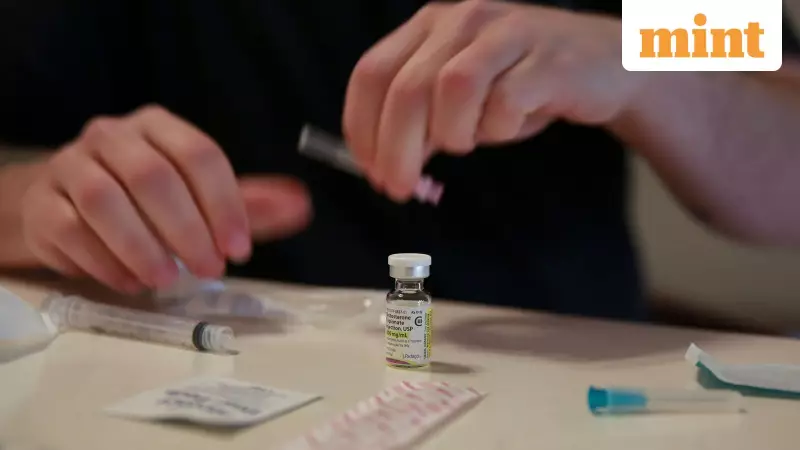
The Rise of Testosterone in Women's Wellness
Across social media platforms in India, a new and surprising health trend is gaining momentum: the promotion of testosterone as a performance-enhancing supplement for women. Influencers are hailing it as a 'powerhouse hormone' for boosting energy, mood, muscle tone, and overall vitality. This has led some women to seek out treatments, including the injection of slow-dissolving testosterone pellets.
Despite being commonly labeled a 'male' hormone, testosterone is essential for women's health. It plays a crucial role in libido, sexual arousal, and orgasm by increasing dopamine levels in the central nervous system. Doctors have recognized its benefits since the 1940s, prescribing it for issues like low sex drive.
A Medical Comeback After a Scare
This medical practice declined sharply at the turn of the millennium due to widespread fears around Hormone-Replacement Therapy (HRT). Although the primary concerns involved oestrogen and progesterone, testosterone was inadvertently caught in the crossfire, with doctors wary of a lack of robust, evidence-based research.
However, as concerns about HRT have subsided, testosterone is making a comeback. Dr. Caroline Messer, an endocrinologist at Fifth Avenue Endocrinology in New York, notes that women are reconsidering the hormone. Since 2019, it has been formally offered for hypoactive sexual desire disorder (HSDD), a clinical term for low libido.
The data reflects this shift. In the United States, prescriptions for testosterone for women increased by almost 50% between 2013 and 2023. In Britain, the rise was even more dramatic, with a ten-fold increase from 2015 to 2022.
Benefits, Risks, and the 'Grey Area'
Testosterone levels naturally peak in a woman's 20s and decline with age, dropping to about a quarter of their peak by menopause. The goal of therapy for HSDD is to restore levels to a pre-menopausal range, typically using topical products applied to the skin.
Experts like Dr. Messer advise against injectable pellets, warning that they can deliver an uncontrolled, excessive dose. Too much testosterone carries significant side-effects, including acne, excess body hair, mood swings, and even a permanent deepening of the voice.
Beyond sexual health, testosterone may offer benefits for other menopausal symptoms. Many women report experiencing 'brain fog,' characterized by fatigue, poor concentration, and memory lapses. Dr. Enone McKenzie, a consultant psychiatrist in London, observes that peri-menopausal women prescribed testosterone for low libido often report improved mood, better memory, and less decision fatigue. Some studies on post-menopausal women also suggest potential improvements in mood and cognition, though more comprehensive trials are needed to confirm long-term safety and efficacy for these uses.
This leaves non-sexual applications in a medical grey area. For younger women with no medical need, using testosterone to enhance mood or performance is uncharted and risky territory. Using high doses for muscle-building, similar to male bodybuilders, is deemed unsafe by medical professionals.
For women with genuine medical needs like HSDD, testosterone supplements at sensible doses can be invaluable. But Dr. Messer cautions that for everyone else, it risks becoming just another 'hormone du jour' needlessly promoted on social media.






